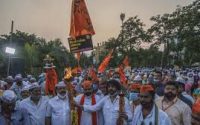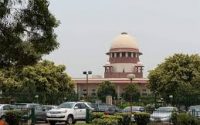Supreme Court to reopen tomorrow after 49-day summer vacation – What is in store?
Source: barandbench.com
The Supreme Court will reopen tomorrow after the summer vacation. The Court was closed for summer vacation on May 13 with the summer vacation lasting for 49 days.
The Vacation Bench, sitting in different combinations functioned throughout the summer holidays.
Two Important judgments both related to the same larger controversy, Rafale, is pending before the Court.
One is the review petition filed by Yashwant Sinha, Arun Shourie, Prashant Bhushan against the Court’s December 2018 judgment, by which it had dismissed petitions calling for an investigation into the Rafale deal.
The Court had initially heard this case on Centre’s preliminary objections with regard the maintainability of the review petitions. It had then turned down the Centre’s stance on maintainability and proceeded to hear the review petition on merits.
Another case connected to Rafale is the contempt petition filed by BJP MP Meenakshi Lekhi against Congress President Rahul Gandhi for attributing the ‘Chowkidar Chor Hai’ remark to the Supreme Court.
Both these cases were heard by a Bench of Chief Justice of India Ranjan Gogoi and Justices Sanjay Kishan Kaul and KM Joseph. The Bench had reserved its verdict in both these cases on May 10.
Another important case in which the Supreme Court has reserved its judgment is the Sabarimala review petitions. The case was heard by the Bench of CJI Ranjan Gogoi and Justices Rohinton Nariman, AM Khanwilkar, DY Chandrachud and Indu Malhotra.
A total of 65 petitions, including 56 review petitions and 4 writ petitions were filed challenging its judgment of September 28, 2018, by which it allowed the entry of women, irrespective of their age, into the Sabarimala Temple in Kerala.
The judgment was reserved on February 6, 2019.
Two other important judgments are also expected. One is the case of Central Public Information Officer, Supreme Court v. Suresh Chandra Agarwal. This is an appeal filed by the Supreme Court against an order of the Central Information Commission which had held that the information relating to appointment of Supreme Court judges should be furnished under the Right to Information Act, 2005. This case involves important questions including whether the Chief Justice of India will come under the scope of RTI Act, 2005.
The second is Madras Bar Association case which pertains to a challenge to Sections 156 to 189 of Finance Act, 2017 which amend provisions relating to structuring and re-organisation of tribunals. Various issues were heard in this case including bringing all tribunals under the Ministry of Law and Justice, uniformity of tribunals, the passage of Finance Act as Money Bill etc.
Another important case which could come up for hearing soon is the challenge to Article 35A of the Constitution.
Article 35A, which was added to the Constitution by a Presidential Order in 1954, accords special rights and privileges to the natives of J&K, and empowers its legislature to frame any law without attracting a challenge on grounds of violating the right to equality of people from other states or any other right under the Indian Constitution.
The matter was slated to be heard in January 2019 but was eventually not taken up. It might come up for hearing in the coming months.
Aside from these, one of the most important cases which would be heard would be the Ram Mandir- Babri Masjid dispute. The Court had referred the matter for mediation in March this year. The Court has granted time to the Mediation Committee till August 15 to complete the mediation and submit its report to the court.
Besides all these, the Supreme Court will sit at its full strength from tomorrow. It is after a very long time that the Court is sitting at its full sanctioned strength of 31.
Four new judges were sworn in on May 24 bringing the strength of the Supreme Court to its full quorum of 31. The Supreme Court will continue sitting at its full strength until the retirement of Justice AM Sapre on August 27, 2019.



